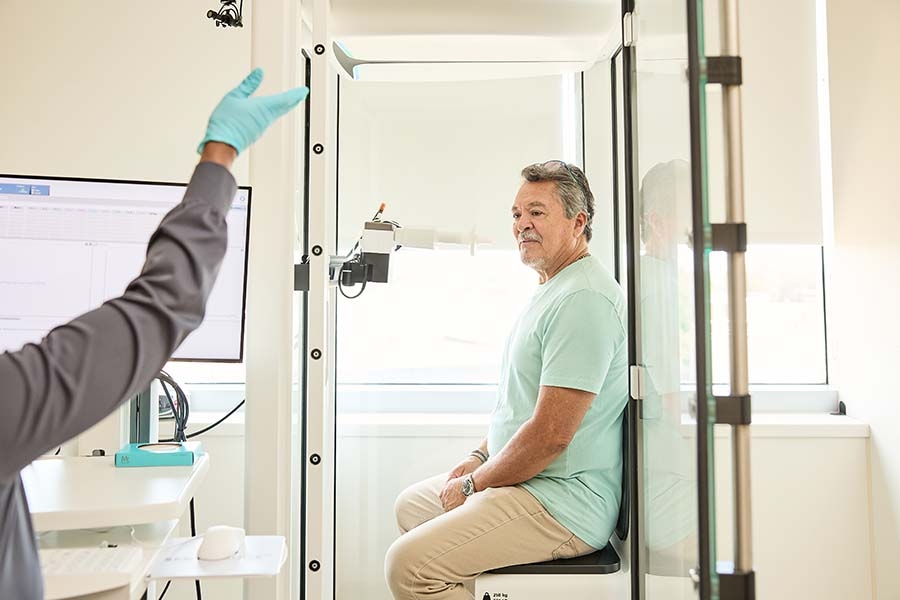Symptoms of chronic obstructive pulmonary disease (COPD) often do not appear until the lungs have already been significantly damaged, which can make COPD difficult to diagnose. This is true for both emphysema and chronic bronchitis. When mild symptoms do occur, they can sometimes be mistaken for other conditions like asthma or congestive heart failure. Symptoms usually become more severe as COPD progresses.
It’s common for people with COPD to experience periods during which their symptoms become worse. These episodes are called flare-ups (or exacerbations) and generally last for several days.
Early diagnosis and treatment can help slow the progression of COPD. If you have one or more common symptoms of COPD, talk to your doctor. You may benefit from a referral to a Temple pulmonologist.
Common Symptoms
The most common symptoms of COPD include:
- A cough that’s constant or produces a lot of mucus
- Shortness of breath, particularly during activity
- Wheezing
- Chest tightness
- Need to clear your throat first thing in the morning due to excess mucus in the lungs
- Low energy
- Frequent respiratory infections
Advanced Symptoms
Severe or advanced COPD may cause other symptoms, such as:
- Swelling in the ankles, legs or feet
- Lower muscle endurance
- Unintended weight loss
If you have advanced symptoms of COPD, it’s important that you seek expert care to prevent worsening symptoms. Request an appointment with a Temple pulmonologist or call 800-TEMPLE-MED (800-836-7536) today.
More serious symptoms require treatment in a hospital. Go to your nearest emergency room or call 911 if you’re experiencing:
- Hard time catching your breath or talking
- Blue or gray lips or fingernails
- Feel foggy, or are not mentally alert
- Fast heartbeat
- Prescribed treatment for worsening symptoms is not working
Complications
COPD is the fourth leading cause of death in the U.S. While there is no cure, treatments are available to help reduce your chance of complications and help you lead a more normal life.
If left untreated, COPD may lead to:
- Decreased ability to breathe over time
- Depression, which is linked to a decrease in activity
- Heart problems
- High blood pressure in lung arteries, called pulmonary hypertension
- Higher susceptibility to respiratory infections such as the flu
- Lung cancer
- Reduced life expectancy — Average life expectancy of a COPD patient is 5 to 14 years following diagnosis, depending on the stage.
Lifestyle Changes Help Manage Symptoms
If you have COPD, you can take steps to breathe better and slow damage to your lungs. These include:
- Quit smoking
- Avoid smoke, air pollution and other second-hand chemicals
- Drink 6 to 8 glasses of water a day, unless otherwise directed by your doctor
- Eat nutritious meals as part of a well-balanced diet
- Exercise under the guidance of your doctor
- Get enough sleep without using sleep aids, such as sleeping pills
- Try not to breathe too deeply or quickly after coughing
Ready for an Appointment?
If you're experiencing signs or symptoms of COPD, schedule an appointment or call 800-TEMPLE-MED (800-836-7536) today.
Learn more about our doctors and care team who diagnose and treat COPD.




